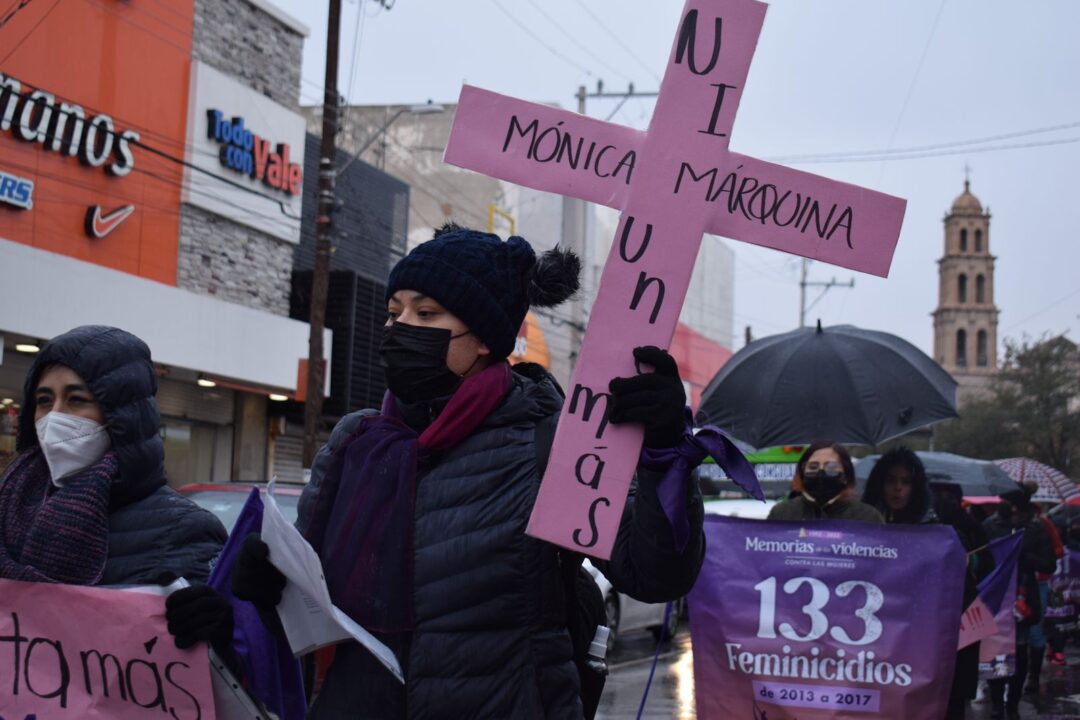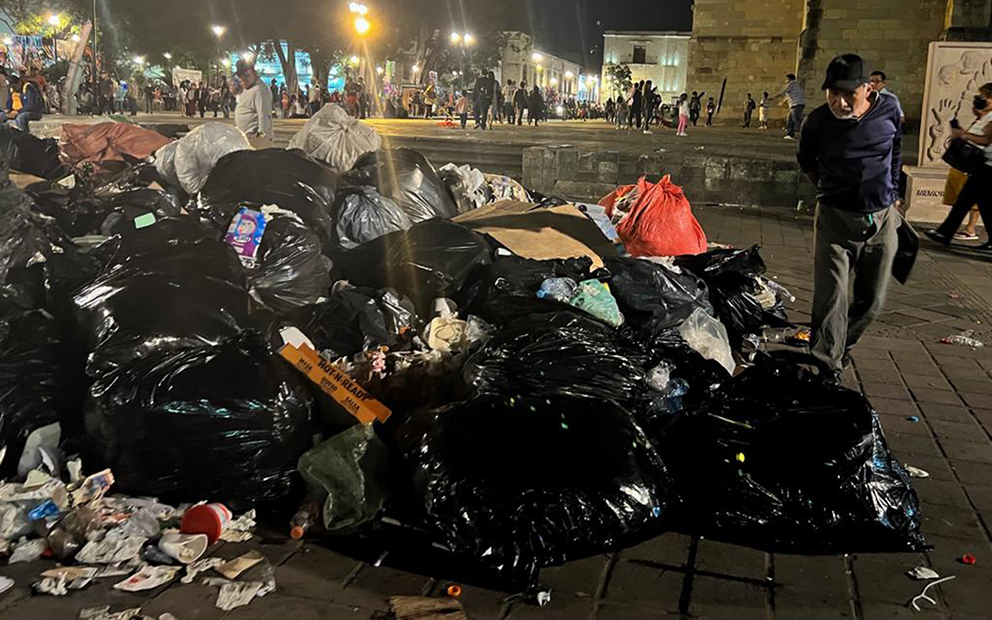Poisoned potatoes, poisoned communities
25 marzo, 2022
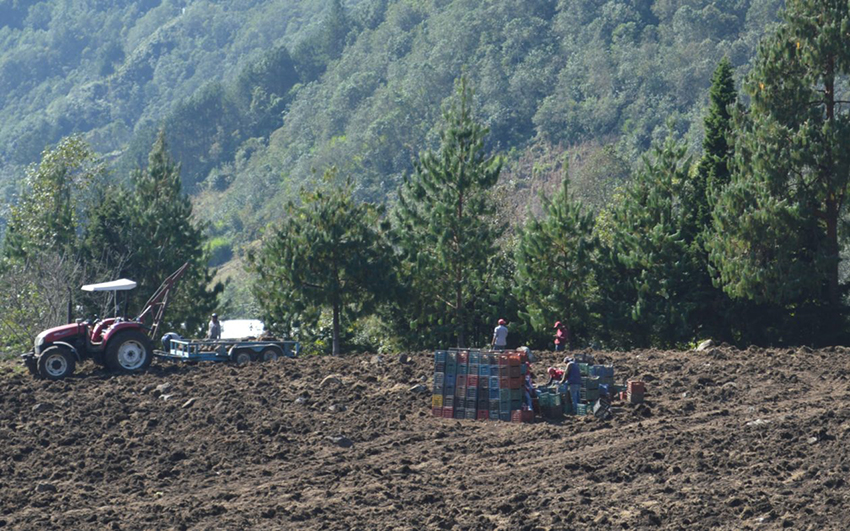
People who live close to potato plantations where agricultural toxins are sprayed experience nausea, skin rashes, headaches, and are even hospitalized. Testimonies from a vast region in the state of Veracruz reveal a complex situation that needs to be regulated as quickly as possible. They also show the way forward to other options that are less harmful to health.
Text by Fabio Ramírez and Rodrigo Soberanes, originally published by La Marea on March 15, 2022.
Translated by Dawn Marie Paley for Pie de Página in English.
VERACRUZ—Diana is expecting twins, and her pregnancy is a risky one. Her body was fine and she had no conditions until an agroindustrial company rented the lot beside her house to plant potatoes. That’s when she started to experience the same health problems that other residents of her town have lived through after being exposed to similar chemical substances.
She lives in Matlalapa, a community in the municipality of Xico that’s facing the consequences of potato monocrops, which use insecticides so powerful they’re considered highly toxic to human health, according to international conventions like the Stockholm Convention (2004) and the Rotterdam Convention (2005), both of which were ratified by México.
In January, Diana began to experience symptoms that caused concern among her family members. It was the first trimester of her pregnancy, when nausea can be at its worst, but what she felt wasn’t normal. “The poor girl was not doing well at all at the beginning of the year,” said her mother-in-law.
She had a lack of appetite, frequent vomiting, itchiness and overall body pain, symptoms similar to those experienced by other residents of her town who live near potato plantations that spray with highly toxic pesticides and herbicides.
Diana and the fetuses inside her are in danger. “In pregnant women, exposure to agricultural toxins can be very serious, the molecules that can alter hormones can also affect their children when they are teenagers,” Fernando Bejarano, the coordinator of the Network for Action on Pesticides and Alternatives in México (RAPAM) told La Marea.
Diana is now facing a dilemma: she has to decide if she’ll stay home and face the risks, or if she’ll find another place to live where she won’t have all the care she needs.
The company that rented the lot beside Diana’s house isn’t facing any such dilemma. It sent its workers to apply herbicides that are technically substances that destroy life, in this case to eliminate herbs or weeds —as they are incorrectly known— and there are also insecticides, fungicides, nematicides, and bacteria killers, which are better known as anti-plague treatments.
In the lot next door, there is no longer a trace of vegetation, which contributes to the degradation of the soil due to chemical contamination.
They also removed hundreds of rocks using machines, until the land was left without any obstacles in the way of the plow and the planting of tubers. This means the soil is exposed, and more vulnerable to erosion due to heavy rains and wind. In addition, potatoes are planted on an angle, inclining downwards.
What’s happening in Matlalapa and nearby communities is that the company is offering large sums of money in exchange for the rental of agricultural lots to harvest potatoes using agrochemicals. The causes of this are complex, and respond to a predatory agroindustrial model, developed in the Green Revolution, which was imposed beginning in the 1960s around the world, and which relies on the use of agrotoxins, machinery and monocrops. Like any other agroindustrial plantation, it appears very profitable, but profitability depends on a volatile market, and the costs of production and socio-environmental risks are high.
“You want to be rich, plant potatoes, you want to be poor, keep planting potatoes,” said one campesino farmer in the region.
Ricardo, the owner of the lot beside Diana’s house, received $10,000 pesos (around US$500) to plant one hectare of land. Even though he’s aware of the impacts and is, in fact, against the use of agrotoxins, he accepted, because he was in an accident that meant he couldn’t work. “I had to accept [the $10,000 pesos] out of damned necessity,” he said in an interview at his house.
Everyone involved in potato farming in the area asked us not to use their names out of concern for security.
How can we blame somebody who really needs the money? How can we blame those who receive (temporary) employment when they can’t find work elsewhere.
But then there’s the nausea, the itching, the headaches, and even the hospitalization of those living nearby.
“They fumigate at night when it’s windy. We can smell the stink,” said Diana’s mother-in-law. “Here they treat all the time. Once I arrived home and it smelled like that liquid,” said another resident. “It made our interpersonal issues explode,” said another.
Matlalapa and other communities in the High Watershed of the Antigua River (CARA), rural localities on the eastern slope of the Cofre de Perote, are facing a difficult choice.
In 2017, the Network for Action on Pesticides and Alternatives in Mexico (RAPAM) calculated that in México there are 185 active ingredients on the market that have at least one compound that makes them highly dangerous.
“That is to say, they could cause death in the short term, or other problems like cancer, reproductive issues, hormonal alterations and serious ecosystem damage including to bees and to riverine life,” said Bejarano from RAPAM.
“What’s most concerning is that the health authorities have failed to give this problem the importance or the attention it deserves,” he added.
Matlalapa, where many are facing situations similar to Diana’s, offers a glimpse of the reality that has become known in the communities around El Cofre over the past five years, which, according to testimonies gathered in the region, is beginning to reach forested towns and cities like Xico, Coatepec, Teocelo and Tlalnelhuayocan.
All of these áreas have great biodiversity, rooted in the mountain forests which produce the water, the food and the environmental services the Xalapa Metropolitan area needs. There are also serious implications for the health of those who are being directly exposed to the pesticides on a daily basis.
The ecological planning process for the capital region of Xalapa, Veracruz, regulates the harvest of mono-crops using chemical substances in the city and 11 nearby municipalities, including Coatepec.
The directive means state and city authorities have to comply with the planning and notes that agrotoxins are not permitted within 500 meters of “households, public spaces, water bodies which are used for drinking water (rivers, streams, wells, dams) or ecosystems which are important to sustain life in the region.”
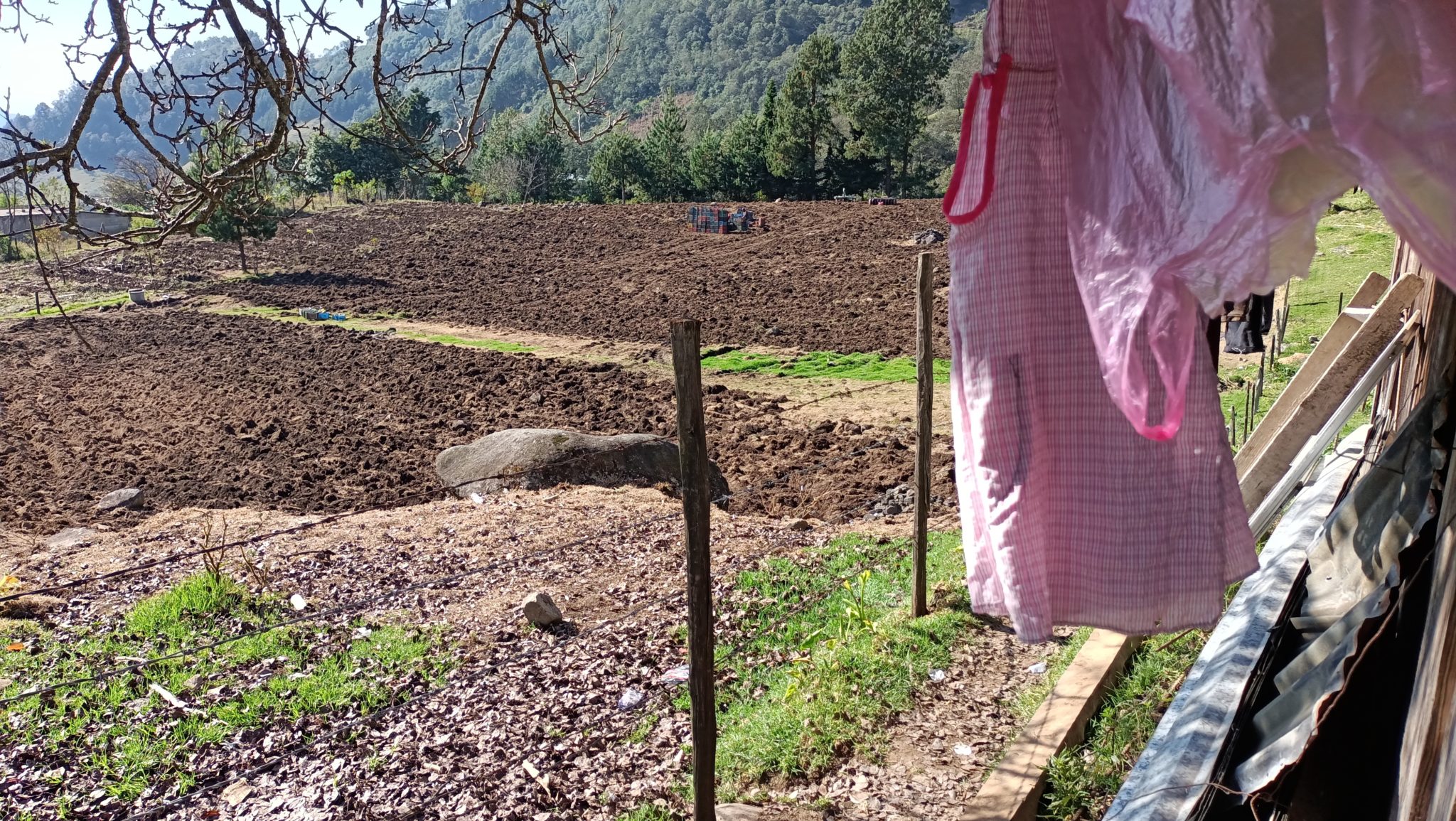
Voices from the mountain
Matlalapa is located on the edge of the Cofre de Perote volcano, at 2070 meters above sea level. Someone who is used to the altitude and experienced in climbing could walk up to the top of the mountain in a day.
On the way up to the peak are communities like Los Pescados and El Conejo, part of the CARA high mountain region, located at 3,000 meters above sea level. These communities have ideal growing conditions for potato production, and have done so since they can remember. Residents say that around 30 years ago, the model of contract-rental agriculture got started, launching an avalanche in the use of dangerous pesticides.
In this region there are organizations like Sendas A.C. which have worked for at least seven years to promote small-scale, ecological potato farming. They’ve found that at least 10 commercial products that have agricultural toxins considered “very dangerous” by RAMAP are being used in the area.
What’s taking place in Matlalapa and the middle zone of CARA had taken place years earlier “up there” in El Conejo, Los Pescados, and other communities. However, the conditions for potato growing are even better the higher one goes: down below, there is much more humidity, higher temperatures and soils that do not support potato growth as well. Regardless, potatoes are planted in fall and winter, when they cannot be planted at higher altitude due to winter frosts.
Higher up, residents say it was a mistake to let in the companies that rent their lands for money, and that they’ve found a way to keep growing potatoes differently. With a different vision of life.
The testimonies of members of these communities are also shared anonymously, because of security concerns.
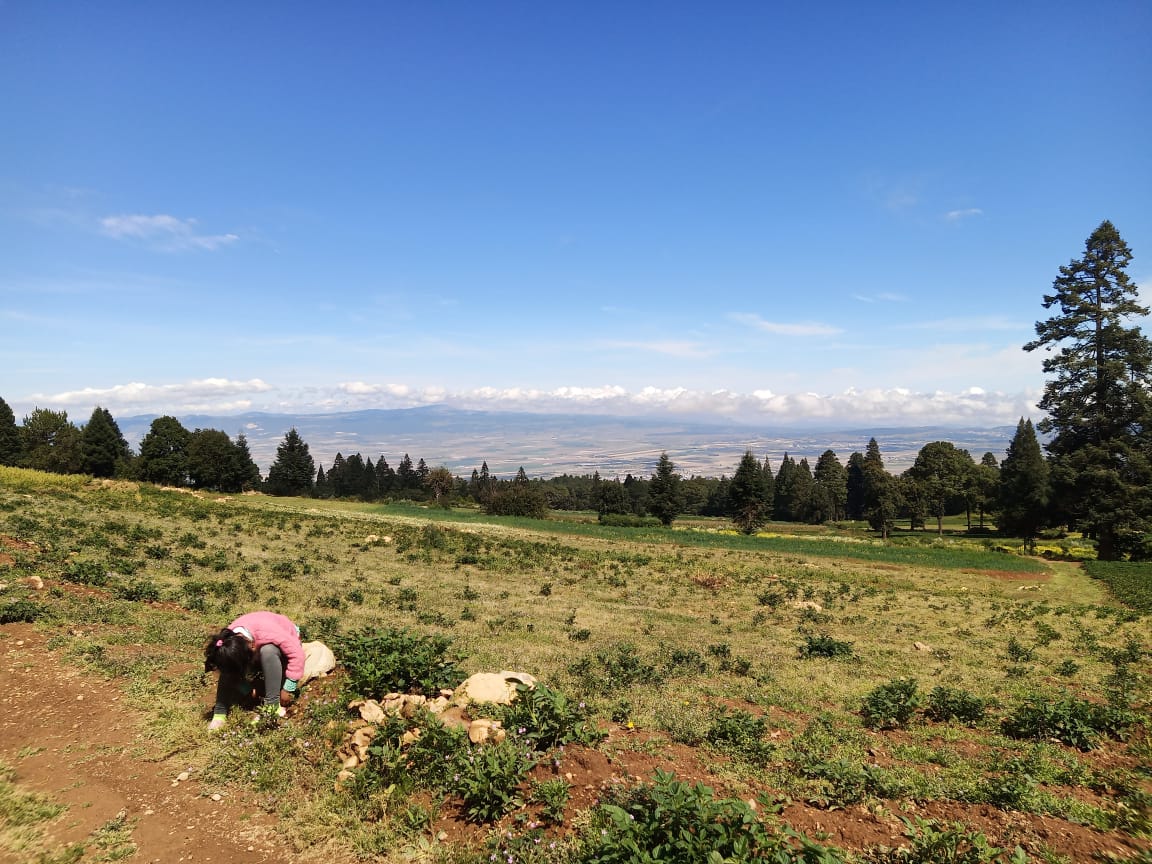
Voices of a farming family from the town of Pescados:
While the family finishes filling bags to plant oyamel, they’re bent over with their hands in the dirt, and they start telling about their experiences in the fields.
“This is how we live. When I first opened my eyes I saw potatoes and now I’m growing old planting them,” said one member of the family.
“The chemicals have been around for about 30 years, they were introduced supposedly so that we could harvest more. What pushed us to use them was the consumer, the people from the cities. The market is what dominates. The whole countryside is being criminalized as if we were destroying nature, but it’s consumers who demand that kind of potato, esthetically pleasing, large, shiny, slightly pink. If it has a single spot, no one will buy it. The only people who are offering jobs here are the potato firms, no one else.”
The farmer continued his story: He stopped planting with dangerous agricultural toxins 13 years ago when he fell ill and was hospitalized on various occasions, together with his son.
“The agricultural toxins killed the flora, and the fauna. What made me make a change was that my son and I were poisoned three or four times. We went to the hospital. You lose yourself, you don’t feel like yourself anymore, my clothes would burn to the point that I would arrive home naked, I don’t even know how, I’d lose consciousness, and feel horrible. Same thing happened to my son. We saw that money wasn’t what was important, but health was, so now we don’t have new cars or things that aren’t really necessary, but it’s not the same having some money in your pocket as not having any. Now we produce garlic, onions, squash, flowers and greens.”
His daughters say their lands, which are now chemical free, are very different from how they were, and that life has returned to them.
“The problem isn’t in the countryside; the earth provides. But it doesn’t produce the aesthetic qualities of supermarkets, there’s potatoes that smell like fumigation. What we see in our lands is that now there are plants that grow on their own and the animals are returning. In the neighboring lots [where they are still using agricultural toxins], the earth erodes quickly, a bit more than half a meter deep, we can smell when they’re fumigating, the birds left and no longer sing in the mornings, but we realized that it is all of us that are causing this.
Testimony of a woman who grows potatoes in her lot in Los Pescados:
“The strongest pesticide is El Furadán, there’s potatoes that smell like poison when you slice them open. People here have problems with their kidneys, they’ve got cancer, they’re poisoned, there are miscarriages, but neither men nor women attribute it to the toxins.
Today, she’s part of a group producing ecologically grown food.
“We use biological materials (humic acids, super lean, mineral soups, migro-organisms, organic fertilizers, bocashi and rock flour) so that we don’t have to use toxins. I was lucky enough to hear one of the elders talk about it, and my father saw and lived [a period of agriculture performed without dangerous insecticides] and I think that’s helped us.
“The potato planted here is conventional and it is harmful. It has a different flavor, they use a lot of chemicals so it looks nice, and we get whiffs of whatever they’re spraying, even from a distance, we get stomach aches, headaches, and sometimes experience nausea. My husband had rashes on his skin, he’s been working with toxic potatoes for four years. There were three teenagers who were hospitalized here for two days after breathing the toxins, at least their boss took responsibility and paid for their treatment.
Testimony of a woman from the community of El Conejo:
“They’ve already ruined the fields, if they don’t use poison now nothing grows, everything is so expensive because you have to use fertilizer and fumigate a lot. The people who fumigate get sick, they get dizzy and faint, the smells reach us and we get headaches, it’s called Furadán.
Testimony of a producer of ecological potatoes from Los Pescados.
“If you go after the owner of a potato farm here, everyone will attack you, cause they’re the only ones who offer jobs. We’re growing agro-ecological potatoes, and we’re organized, but we don’t have the support we need: revolving loans, stimulus that could help us do a demonstration of what we want to do. Right now, we can’t compare ourselves with the big producers, we know [small scale farming] works, but we’re stuck and we can’t expand, and that’s because of the market.
“I want to be an example in my community, I haven’t convinced anyone from my community to change the system, what we’re lacking is funding that would allow us to sell on the conventional market.
“A 27 kilogram sack of toxic potatoes costs $400 (about US$20). A sack of agro-ecological potatoes costs $600 pesos (about US$30).
“What are we going to do if we stop growing potatoes? What alternatives would allow us to stop growing toxic potatoes? How do we tell people to stop buying products that are contaminated? If the potatoes are ugle, no one buys them, we need to inform buyers what they are getting, talk about the nutritional value of the potatoes, raise awareness of what they are buying and from whom. To change consumption we have to change the whole culture and we’re not ready for that yet, there’s a mafia in the agricultural sector, big business, and all the rest. There’s a lot of money involved, we can’t talk much about all that.”
People from the mountain try to go against a dominant food system that goes hand in hand with agro-industrial chains. Bejarano thinks that “We need strategies to transition towards solutions that help us break this dependence.”
“We need to articulate the spaces of production with points of sale, and eliminate intermediaries so that producers can access credit,” he added.
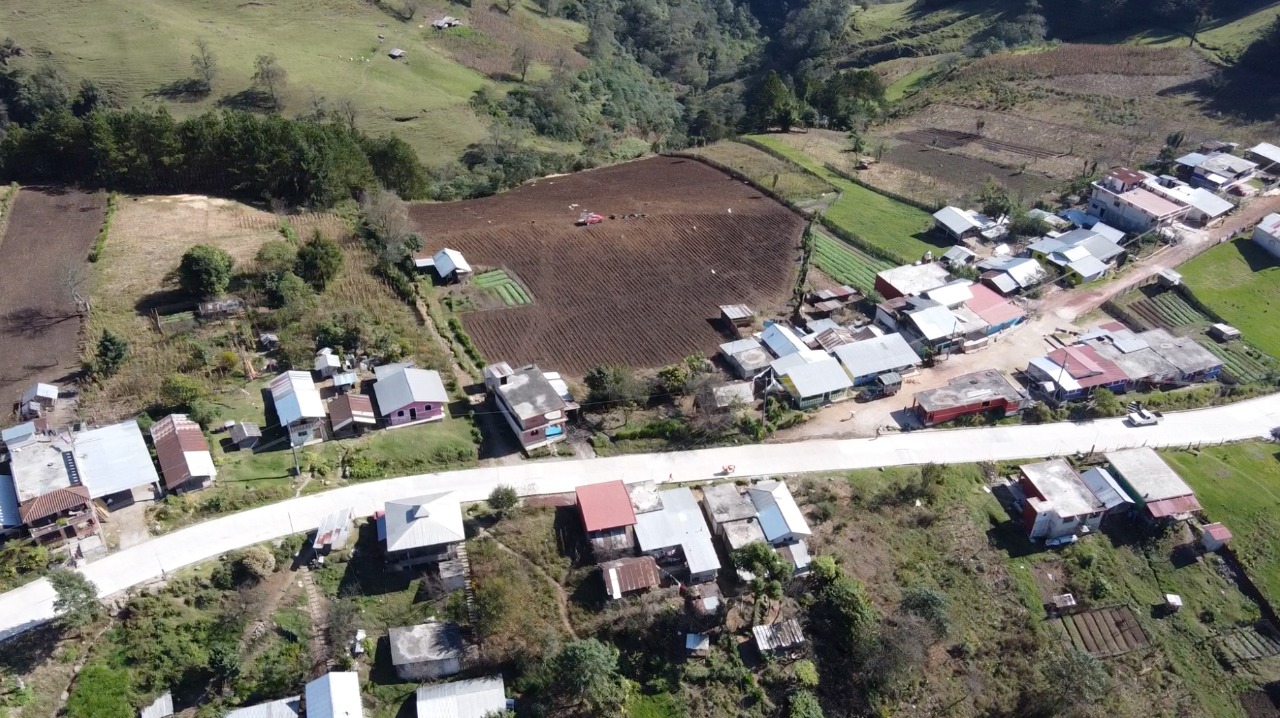
Ricardo’s ‘damn necessity’
It happens all over México, and with the majority of crops. The sale of toxic agricultural projects is generalized because there is “indiscriminate sales” that mean that people like Diana and members of her community and the region are exposed to a “cocktail” of pesticides, according to Bejarano.
“It’s an alliance between the sellers, the warehousers, transnational companies, generic companies and agricultural technicians who were trained to sell agricultural toxins, not to understand the problems [they generate] like environmental contamination and health impacts,” said the specialist.
Ricardo, the owner of the half acre in Matlalapa, was against agricultural toxins. In fact, he participated with Sendas and Pobladores in some agricultural ecology activities promoting another vision, which is opposed to industrial agriculture.
But when he fell from his roof and broke his foot, he didn’t have access to the medical care he needed. So he was forced to change his outlook.
In an interview in his home in Matlalapa, he said he had been in a wheelchair and had no money when the potato farmer offered him $10,000 (about US$500).
“It’s true: potatoes need a lot of agricultural chemicals. The damn necessity made me rent my land. I rented it because I was in a wheelchair,” he said, looking down, leaning on his crutch with a brace on his right foot.
Ricardo didn’t know Diana was pregnant. He said felt bad about the timing, but that he couldn’t go back on the deal he made with the businessperson. He signed a contract and didn’t keep a copy.
The fragility of these situations is what allows a business person to arrive and put local lives at risk in exchange for $10,000 pesos. There are no regulations, in the mountains the institutions that should be there, according to the Constitution, never arrive.
“The authorities are dealing with competing interests from seed and pesticide companies, and in the public sector not everyone is interested in creating the change we need. Since this issue isn’t on the priority agenda, there’s not a proper epidemiological follow up, nor is there control over sales. Agricultural chemicals should be sold under supervision and with written permission, just like antibiotics,” said Bejarano.
In Coatitilán, the community beside Matlalapa, planting potatoes using pesticides was prohibited after a plantation in front of the primary school impacted childrens’ health. The organization Pobladores helped people to organize and organize to have the town of Xico outlaw the toxins. It worked.
Through Pobladores they met Diana and they helped her send a citizen’s complaint for “affectation by toxic odors” that are harmful to health to the town of Xico, and to the health and environmental secretariats. The only one that responded was the latter, which said it was outside of their jurisdiction.
The response to Diana’s complaints came on January 20th. Since then, the only news is that the fumigations are ongoing, and that Diana is still at home. No one knows if the liquid toxins will impact her or her pregnancy. In fact there is no system to track cases like hers. The potatoes in Ricardo’s field are just about ready for harvest.
Agro-ecological proposals and the gradual prohibition of pesticides
Mexican authorities are aware of the harms agricultural toxins bring to the population. In 2018, the National Human Rights Commission (CNDH) emitted recommendation 82/2018, “on the violation of the human rights to nutrition, clean water, a healthy environment and health, for the failure to reach the general obligation of due diligence to restrict the use of highly dangerous pesticides, to the detriment of the general population.”
On March 2, 2022, Diana was visited by a committee of city workers from the Agricultural Development and the Third Registrar’s office of the municipality of Xico. There were also personnel from SEDARPA and from Pobladores and Sendas.
According to information made available to La Marea, during the officials’ visit, they spoke with Diana about the application (of pesticides) in the potato harvest, which was taking place at night but there were persistent odors during the day.
The committee contacted some of the potato workers in Matlala and Ixochitl and “it was proposed that a series of actions to transit to agro-ecology in the region be undertaken, in a coordinated manner between the municipality of Xico, SEDARPA, social organizations and farmers who are already doing agro-ecology, so that they can exchange experiences and carry out training courses that allow for a change in the model of potato production,” according to SENDAS.
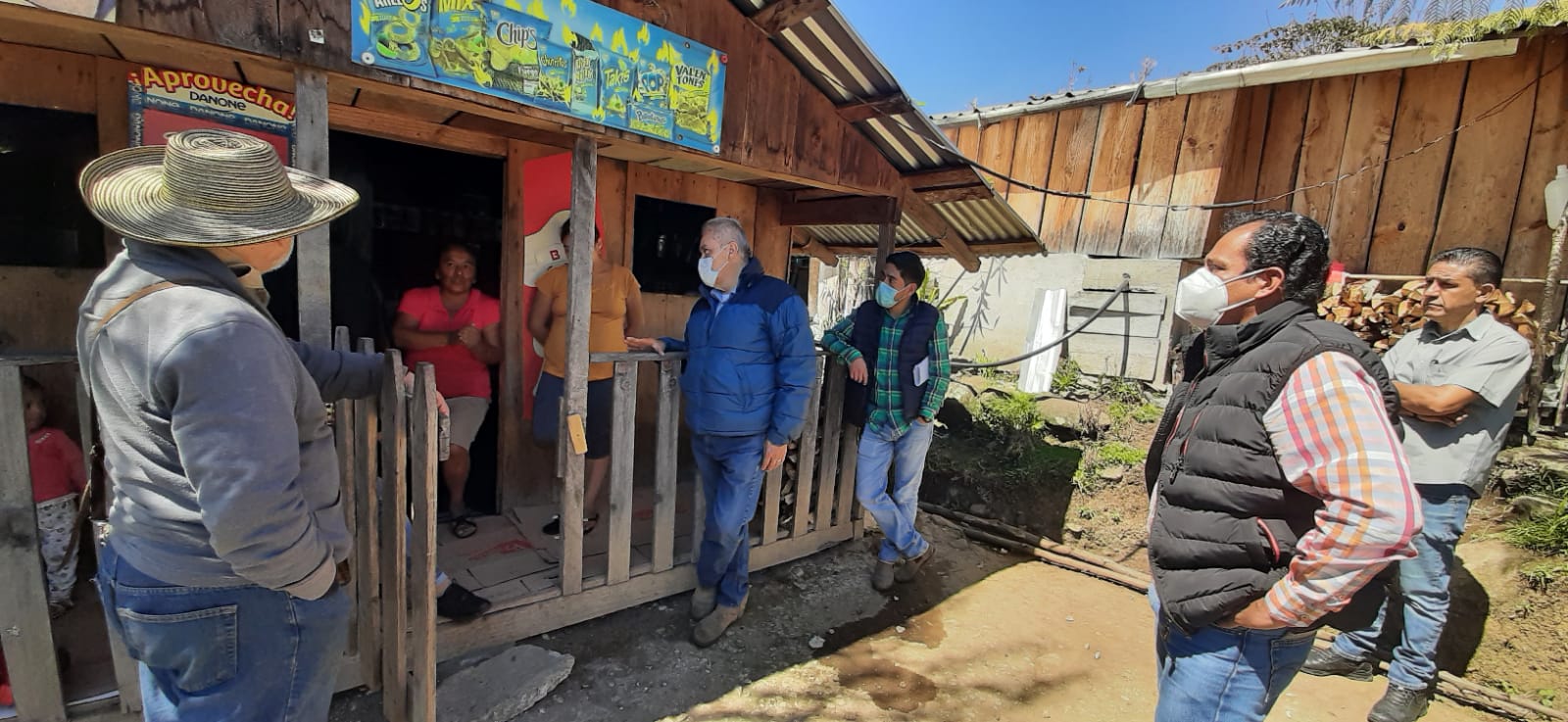
On February 2nd, the federal Chamber of Deputies approved (unanimously, with 478 votes) a series of reforms and additions to various parts of the General Law of Ecological Balance and Environmental Protection, with the objective of regulating the use of very dangerous pesticides. The initiative as approved set out a timeline of no more than four years, starting from the moment the Senate approves the law, during which the Environment and Natural Resources Secretariat, in coordination with federal institutions will set out actions to reduce and progressively prohibit the most dangerous pesticides and substances and compounds which are prohibited in international treaties to which Mexico is party.
“The panorama is challenging, and the goal is to generate all of the infrastructure, training, and processes of emancipatory education with farmers and food producers so that we can reach a social and environmental vision that is sustainable. On the other hand, we must fight a hegemonic agroindustrial system that controls the supply chains: the sale of chemical fertilizers, seeds, pesticides, which are more and more expensive, which are positioned within a collective narrative as the only way to feed the world. In fact, what’s necessary is to re-value the work of farmers, that they have more dignified working conditions, that agro-food policies be designed for food sovereignty and territorial access, and that guarantee human rights and thus respect peoples’ way of life. If we don’t, collapse will be imminent,” concluded SENDAS.
This story was originally published by LA MAREA. Read the original here.
Click here to sign up for Pie de Página’s bi-weekly English newsletter.
Ayúdanos a sostener un periodismo ético y responsable, que sirva para construir mejores sociedades. Patrocina una historia y forma parte de nuestra comunidad.
Dona

